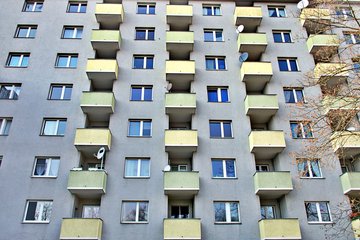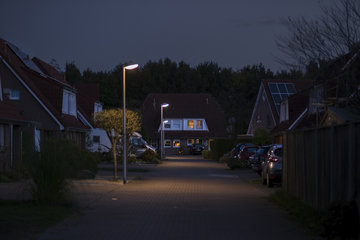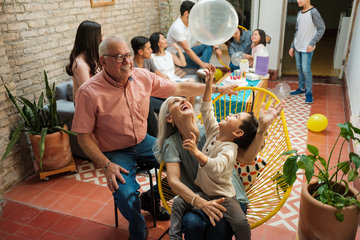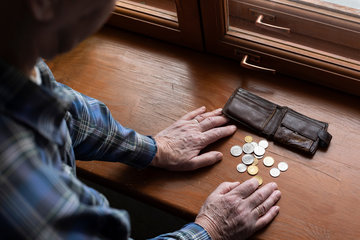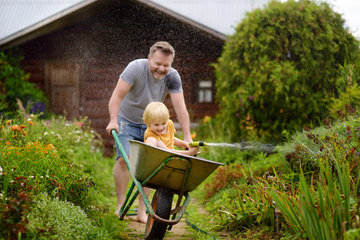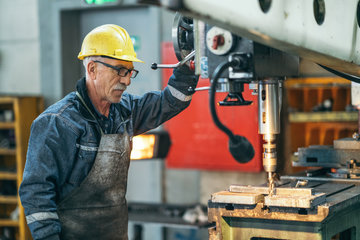Daring more democracy!
A conversation about the rights of children and democracy in schools with Lothar Krappmann, who worked at the Max Planck Institute for Human Development and Freie Universität in Berlin until 2001. He was also a member of the UN Committee on the Rights of the Child from 2003 to 2011, and received the Theodor Heuss Medal from the Theodor Heuss Foundation in 2012 for his commitment to children’s rights. He has now published the book “Worauf Kinder und Jugendliche ein Recht haben: Kinderrechte, Demokratie und Schule. Ein Manifest” (What children and young people have a right to: children’s rights, democracy and school. A manifesto) Debus Verlag Pädagogik 2016).
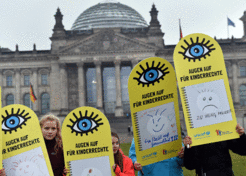
Mr Krappmann: The UN Convention on the Rights of the Child is 25 years old and has been applicable law in Germany since 1992, and in 2006 the Kultusministerkonferenz also expressly committed to enforce this convention. Is a manifesto therefore still required to anchor this Convention in schools?
The UN Convention was without doubt a major breakthrough. However, in the rich countries it was too often seen as a document only to be applied to the developing nations lagging “behind the times”. In addition, the rights of children should not be reduced down to just protective rights. It goes without saying that children and young people - the age groups covered by the rights of the child - also need protection. However, they have a legal right to be heard, over and above this.
With this decision, states have ensured that adolescents are involved in decisions that affect them. Children are all only just starting out in the world, and their interests do not fully align with those of adults. They have their own goals which have to be taken seriously. They are eager to learn what the world looks like. As part of this, all adolescents who haven’t grown up surrounded by terrible experiences always look to adults for guidance in this context.
What characterizes school as an institution when it comes to the rights of children?
If we view children’s rights as an important basis for children and young people to develop civic skills and responsibility, then school is particularly important as the place where said skills are put into practice. All children and young people go through school. And schools are not only places of learning, but also places of living. Many years are spent co-existing at school. You can start discussing something one week and then continue the discussion in the following week. You have the opportunity to discuss values and try out lots of things together. School is not a playground but a real place, an institution within society.
Does this not lead to endless discussions which are nowadays considered to be counter-productive by many educational guides? What about ‘setting boundaries for children’?
The Convention on the Rights of the Child does not call on us to conduct endless discussions. Instead, discussions and arguments in the classroom serve the aim of establishing agreements and rules for mutual learning and living, including setting boundaries. But it goes without saying that negotiation and agreement processes need time and preparation.
Do teachers nowadays learn how these types of discussions should be structured?
Unfortunately there is not enough focus on this aspect of the work in teacher training. As this is at the very heart of the professionalism of teachers and their role, this should not be delegated to specific technical didactics but instead be part of the basic training.
When teaching democracy, what role does family play? After all, the institution of family is ultimately always influential in the education sector.
Family life lays a lot of groundwork, in discussions around the dinner table while planning joint activities. But a family is only a very small unit encompassing a few people with special emotional bonds to one another. School classes are not only an economical way of simultaneously communicating knowledge to a group of children of a similar age. They are also a social platform where knowledge, skills and powers of judgement are continuously, and not just selectively, acquired for tackling the relevant tasks in life together with support from adults.
The school is much more similar to life in working groups, neighbourhoods and civic initiatives than family is. In a class, children can learn about every individual’s basic rights, how differences should be respected, and how to deal with minorities – fundamental basic skills for democratic competency.
Which topics are best suited for learning in this context?
First and foremost, numerous topics that unfortunately often surface directly at school – violence and bullying among children, environmental pollution or wasting food. Often, social inequality divides the class; refugee children require support; children with disabilities need more than just good will. Key life-related themes are at the heart of these challenges, and children often have questions and fears regarding these issues. Schools must apply all their expertise in tackling these topics.
And dedicate plenty of time to them! If you listen to the complaints expressed by parents, teachers and schoolchildren, there is less and less time available in schools nowadays. Were the conditions for children and young people with regard to their rights at school better in the past?
I don’t think so! During my own time as a pupil, schools were an institution, an instrument of rule and authority, initially in a totalitarian state. As I remember it, the first progress I made in terms of democracy came with the re-education programme introduced in schools by the Americans. Pupil representation was set up and class speakers were elected. This gave us a sense of what co-determination can mean. However, our teachers often didn’t know how this was supposed to work. They were used to speaking to the children and not with the children, and were not prepared to attach any particular importance to what pupils had to say.
The student movement after 1968 changed a lot of things in this respect, didn't it?
It was certainly a further step in the right direction. However, that doesn’t mean that we already knew how to implement the desire for recognition and co-determination within teaching methods. The UN Convention on the Rights of the Child from 1989 helped a great deal in this respect, as it created a legally-safeguarded set of values upon which joint responsibility can develop.
Now a large group of children are entering our schools that have fled either with their families or as unaccompanied minors from violence, war and terror in their home countries. What does this mean for the rights of children and democracy in schools?
In some respects, it’s an acid test: Many fled with their families because they no longer wanted to live under an undemocratic, violent regime. In our country they will experience the antithesis of this. We should basically be thankful because they challenge us to test whether the tolerance, openness and respect we like to talk about really exist in school life with these children. We should recognize the opportunity for developing an education that paves the way for all people to live together.
That sounds nice. But isn’t that asking too much of schools?
Schools today are already proving that greater participation of children and young people is possible and that pressing issues can be tackled in lessons and practice projects. However, schools need support, such as teaching workshops – space for reflection, discussion, planning and testing. A number of foundations have picked up on the topic. The Deutsche Gesellschaft für Demokratiepädagogik (German Association for Teaching Democracy) is supporting teachers. There are also networks of schools that are committed to establishing children’s rights and the participation of schoolchildren. Of course I hope that our “manifesto” will also have a positive impact in this respect.
Some schools allow children and young people to gain experience within their immediate environment, such as with work experience in institutions outside of school and evaluation of these experiences in the classroom. Partnership programs with kindergartens and retirement homes also exist. This sort of social and civic involvement also ultimately falls under the rights of children to have “their development fostered in the widest possible scope” and “to prepare them for a life lived with awareness for responsibilities”, as the Convention on the Rights of the Child demands of educational institutions.
Science journalist Dr. Adelheid Müller-Lissner spoke with Prof. Krappmann)





